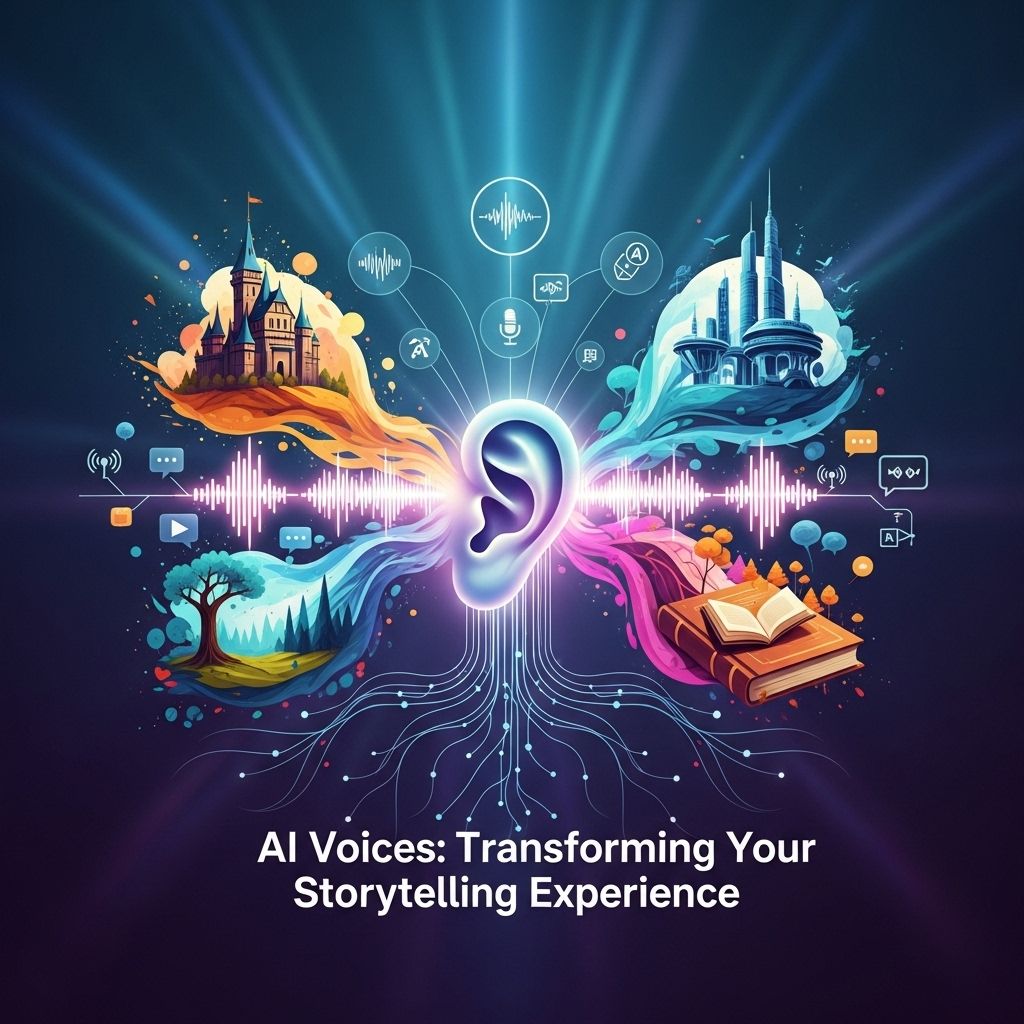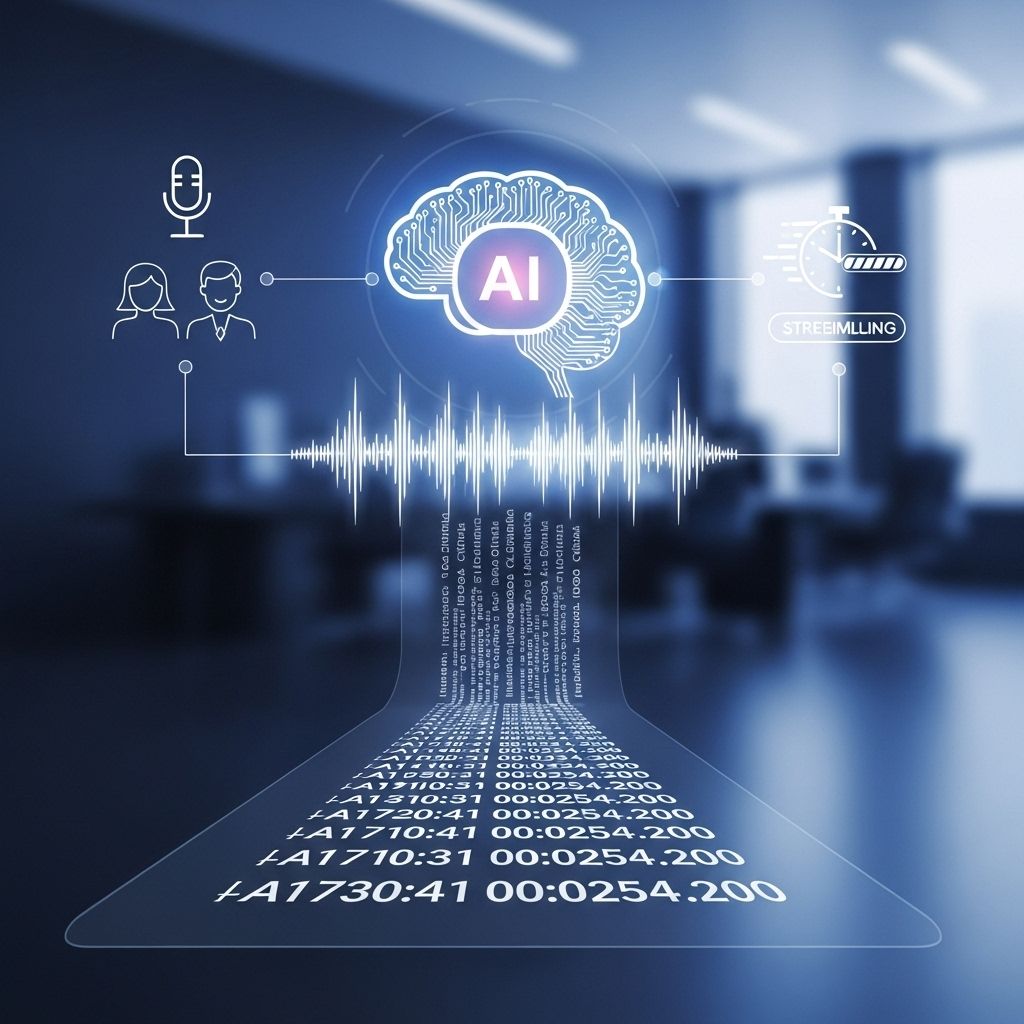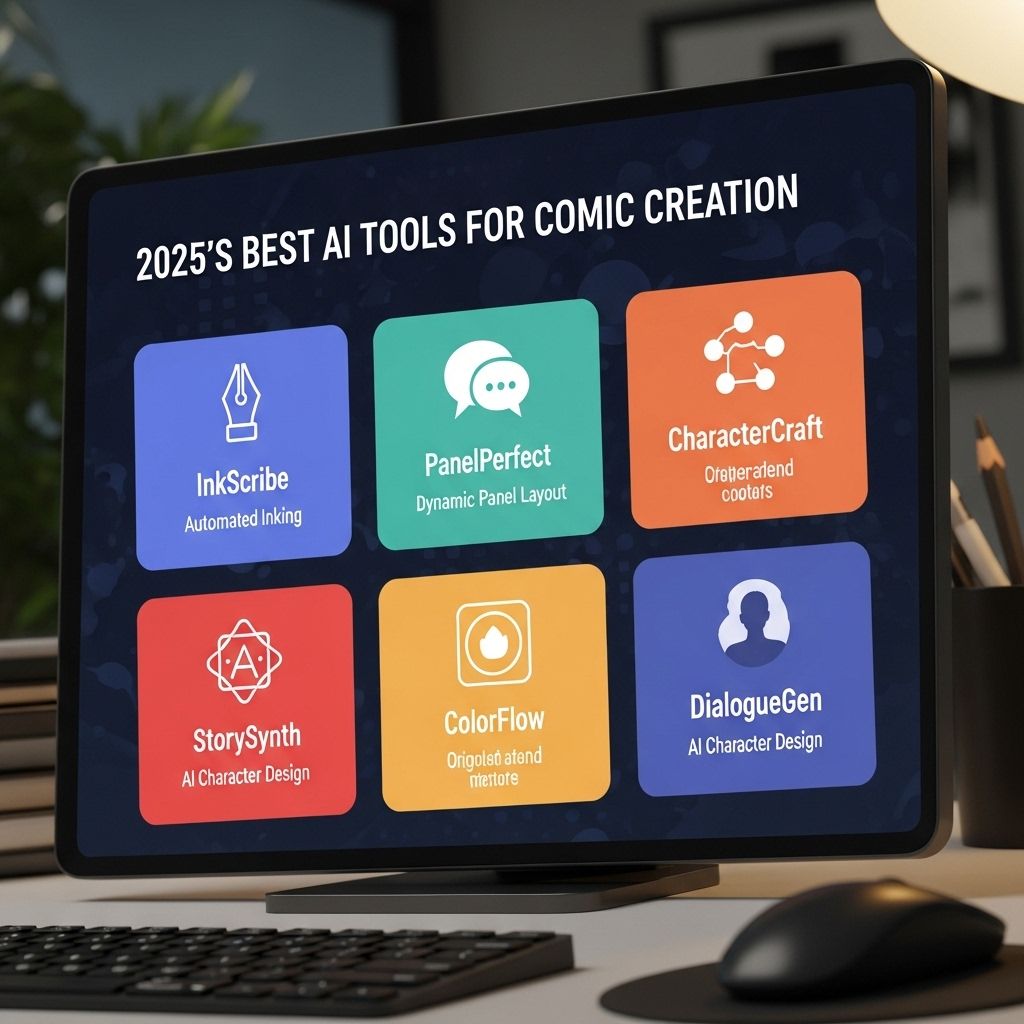Transform Your Storytelling with AI Voices
Discover how AI voices are revolutionizing storytelling, enhancing engagement and creativity in your narratives.

In the digital age, the way we consume stories has evolved dramatically. With the advent of artificial intelligence, storytelling has transcended traditional mediums, allowing for immersive and dynamic experiences that were once the realm of science fiction. AI voices have emerged as a revolutionary tool, enabling storytellers to engage their audiences in ways that are both innovative and accessible.
Table of Contents
The Emergence of AI Voices
AI voices have gained popularity due to their ability to generate realistic and expressive speech through advanced algorithms and machine learning. This section delves into the technological advancements that have led to the rise of AI-generated voices.
Technological Foundations
To understand AI voices, it’s essential to look at the technology that powers them:
- Text-to-Speech (TTS) Systems: These systems convert written text into spoken word, using various techniques to create natural-sounding speech.
- Deep Learning: Neural networks are trained on large datasets to produce voices that can emulate human emotion and inflection.
- Voice Cloning: This technology allows for the creation of a digital voice that mimics a specific individual’s speech patterns and tone.
Applications of AI Voices
The versatility of AI voices can be seen in various fields, including education, entertainment, accessibility, and more. Here are some practical applications:
1. Storytelling in Entertainment
AI voices are transforming how narratives are told in films, audiobooks, and games:
- Dynamic Characters: Developers are utilizing AI to create characters that can respond to user input in real time.
- Audiobook Narration: AI-generated voices can produce engaging audiobooks without the need for human narrators.
2. Enhancing Learning Experiences
In education, AI voices are being used to enhance interactive learning:
- Language Learning: Students can practice pronunciation and comprehension with AI voices that can replicate native speakers.
- Accessible Learning Materials: Students with disabilities can benefit from AI voices that read texts aloud, making information more accessible.
3. Accessibility Tools
AI voices play a crucial role in creating a more inclusive environment:
- Screen Readers: AI-powered screen readers help visually impaired individuals access digital content.
- Communication Devices: AI voices are integrated into devices used by individuals with speech impairments, allowing them to communicate effectively.
The Advantages of Using AI Voices
AI voices offer a plethora of benefits that enhance storytelling and communication:
| Advantage | Description |
|---|---|
| Cost-Effective | Developing AI voices can be significantly cheaper than hiring voice actors, especially for large projects. |
| Consistency | AI voices provide a uniform tone and style throughout a project, ensuring a cohesive listener experience. |
| Scalability | AI can produce content quickly, allowing for rapid scaling of projects without compromising quality. |
| Customization | Voice parameters can be easily adjusted to fit specific character traits or emotional tones. |
Challenges and Considerations
While AI voices present numerous advantages, there are also challenges that need to be addressed:
1. Ethical Concerns
As with any technology, ethical dilemmas arise, particularly concerning voice cloning and privacy. It’s crucial to ensure consent and protection for individuals whose voices are being replicated.
2. Emotional Depth
Despite advancements, AI voices sometimes struggle to convey the full emotional depth that a human voice can provide. The subtleties of human emotion can be challenging for AI to replicate accurately.
3. Public Perception
Some audiences may prefer the authenticity of human voices, which can affect the acceptance of AI-generated content. Understanding audience preferences is key to successful implementation.
The Future of AI Voices in Storytelling
As technology continues to advance, the future of AI voices holds exciting possibilities:
1. Personalized Experiences
Imagine a world where stories are personalized, with AI voices that adapt to the listener’s preferences, age, or emotional state to create a tailored narrative experience.
2. Enhanced Interactivity
The integration of AI voices with virtual reality (VR) and augmented reality (AR) can create fully immersive storytelling experiences where the audience engages with characters in real-time.
3. Continuous Improvement
Ongoing research in natural language processing and machine learning will likely lead to even more lifelike AI voices, making storytelling more captivating over time.
Conclusion
AI voices are undeniably transforming the storytelling landscape. They offer creators innovative tools that enhance engagement, accessibility, and personalization. While challenges remain, the potential for AI voices to revolutionize how we tell and experience stories is immense. As we continue to explore the possibilities, the intersection of technology and narrative will surely yield exciting new chapters in the art of storytelling.
FAQ
What are AI voices and how do they work?
AI voices are synthetic speech generated by artificial intelligence algorithms. They work by analyzing text input and using advanced algorithms to produce natural-sounding speech that mimics human intonation and emotion.
How can AI voices enhance storytelling?
AI voices can enhance storytelling by providing dynamic narration, creating immersive audio experiences, and allowing for personalized storytelling options that engage listeners on a deeper level.
Are AI voices customizable for different characters?
Yes, many AI voice platforms offer customization options that allow users to choose different voices, accents, and tones to match each character in their storytelling.
Can I use AI voices for commercial projects?
Yes, most AI voice solutions provide licensing options for commercial use, but it’s important to review the terms of service to ensure compliance with usage rights.
What industries can benefit from AI voice technology?
AI voice technology can benefit various industries, including entertainment, education, marketing, gaming, and accessibility, enhancing user engagement and experience.








